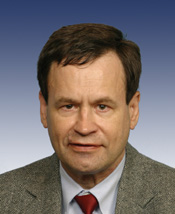A Quote by Robert Dallek
The Atlantic conference in the North Atlantic off Newfoundland is a dramatic moment in World War II history because for the first time, Roosevelt and Churchill are meeting face to face in this war.
Related Quotes
Democracy takes work. That's the thing we're really finding out, that, you know, in many ways, you know, the past two decades we've taken for granted all of the extraordinary achievements of the post-war generation. You know, building this global alliance structure that has kept the peace across the North Atlantic since World War II. Building all of these institutions, building all this remarkable technology. And people have privatized. You know, you can now, you don't have to go outdoors much, the whole world comes to you.
However, there is a fundamental difference between the issue related to Japan's history and our negotiations with China. What is it all about? The Japanese issue resulted from World War II and is stipulated in the international instruments on the outcomes of World War II, while our discussions on border issues with our Chinese counterparts have nothing to do with World War II or any other military conflicts. This is the first, or rather, I should say, the second point.
I think the most important thing that comes out of the meeting between Churchill and Roosevelt in early 1942 is a commitment on Roosevelt's part to fight Europe first. To struggle first against Germany and put Japan and the Pacific as a secondary theatre in the conflict. And this is what Churchill was after.
I actually thought that the idea of doing a World War II movie in the guise of a spaghetti western would just be an interesting way to tackle it. Just even the way that the spaghetti westerns tackled the history of the Old West, I thought it could be a neat thing to do that with World War II, but just as opposed to using cowboy iconography, using World War II iconography as kind of the jumping-off point.
It's important to remember that World War II was experienced very much as a continuity in that sense. Most of World War II in most of Europe wasn't a war; it was an occupation. The war was at the beginning and the end, except in Germany and the Soviet Union, and even there really only at the end. So the rest of time it's an occupation, which in some ways was experienced as an extension of the interwar period. World War II was simply an extreme form, in a whole new key, of the disruption of normal life that began in 1914.
Because the US has control of the sea. Because the US has built up its wealth. Because the US is the only country in the world really not to have a war fought on its territory since the time of the Civil War ... Therefore we can afford mistakes that would kill other countries. And therefore we can take risks that they can't ... the core answer to why the United States is like this is we didn't fight World War I and World War II and the Cold War here.
The executive orders. Barack Obama is doing it again with this ban that he thinks is in perpetuity on offshore drilling in the Atlantic Ocean and north of Alaska. It's bad what Obama's trying to do, and I know exactly what he is doing with this. But the first thing is, the areas that Obama has, by executive order, declared off-limits are areas nobody wants to drill in anyway. There are no plans to drill off the coast, the East Coast of the country out in the Atlantic, and there are no plans to drill north of Alaska in the Arctic Circle.
History of America, Part I (1776-1966): Declaration of Independence, Constitutional Convention, Louisiana Purchase, Civil War, Reconstruction, World War I, Great Depression, New Deal, World War II, TV, Cold war, civil-rights movement, Vietnam. History of America, Part II (1967-present): the Super Bowl era. The Super Bowl has become Main Street’s Mardi Gras.
World War II made war reputable because it was a just war. I wouldn't have missed it for anything. You know how many other just wars there have been? Not many. And the guys I served with became my brothers. If it weren't for World War II, I'd now be the garden editor of The Indianapolis Star. I wouldn't have moved away.
I think in many ways, the Spanish Civil War was the first battle of World War II. After all, where else in the world at this point did you have Americans in uniform who were being bombed by Nazi planes four years before the U.S. entered World War II? Hitler and Mussolini jumped in on the side of Francisco Franco and his Spanish nationalists, sent them vast amounts of military aid, airplanes, tanks - and Mussolini sent 80,000 ground troops as well - because they wanted a sympathetic ally in power. So I think it really was the opening act of World War II.







































